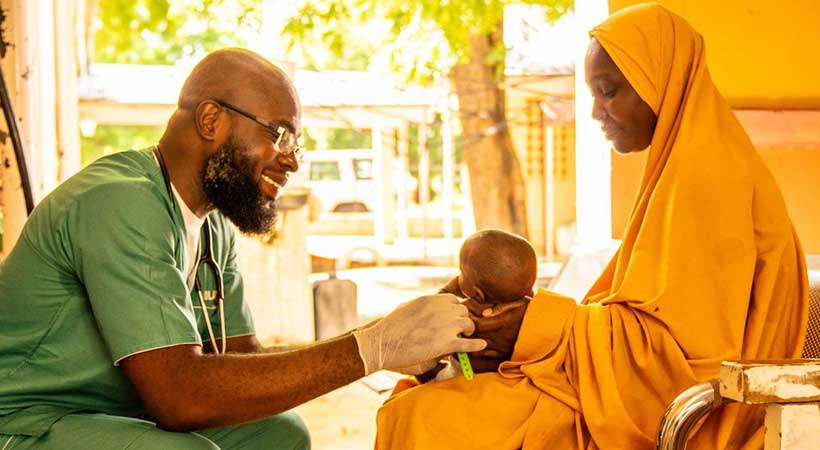It has been a year or two since we recovered from the COVID-19 pandemic, but should we start preparing for a new epidemic? The virus in focus this time is Mpox, which is usually prevalent in Africa but is now spreading globally. For the second time since 2022, the World Health Organization (WHO) has declared Mpox a Global Health Emergency as the virus is flourishing rapidly across the African continent. It was initially called “monkeypox” when discovered in monkeys for the first time in 1958. At the time, these captive research monkeys were in Denmark. The disease began to spread to other Central and Western African nations in 1970 when a nine-month-old infant in the Democratic Republic of Congo (DRC) became the first known human case.
Mpox is a viral disease transmitted to humans through close contact with an infected animal or person. It causes flu-like symptoms, fever, muscular pain, and skin lesions. It is usually mild and most people recover within a few weeks. However, it can be severe and fatal in vulnerable groups including children, pregnant women, individuals with HIV, and those who are malnourished, all at higher risk of complications. Thus, this article aims to highlight the severity of the Mpox endemic in Africa, its spread to other continents, the vulnerability of Pakistan and compel the international community to take swift, collective, and decisive action to halt the spread of the virus and prevent a full-blown pandemic.
There are two major types of monkeypox virus (MPXV): clade I, with subclades Ia and Ib, and clade II, with subclades IIa and IIb. Clade I is generally considered to be more severe than Clade II. According to reports, the MPXV has now been detected in at least one-fourth of the countries in Africa. Since the outbreak began, over 100,000 confirmed cases of MPXV, including 208 deaths, have been reported by several countries. The Africa Centers for Disease Control and Prevention, reports in 2024, the continent has seen a significant surge, with over 14,000 suspected and more than 2,000 confirmed MPXV cases resulting in 524 deaths, which are several times higher compared to last year’s statistics. The rapid rise and spread of MPXV clade Ia and Ib has triggered a global stir as it is now crossing borders.
The current outbreak of the MPXV is now immersing Europe and Asia. With one case reported in Sweden and one in Pakistan after the WHO declared that the virus had become a “public health emergency”. On 15 August 2024, Sweden reported one imported case of MPXV. The individual is an adult who had recently returned from an affected region of Africa where a cluster of cases of the clade Ib of MPXV has been reported. Since MPXV Clade Ib was first witnessed in the DRC there have been confirmed cases in Burundi, Rwanda, Uganda, and Kenya before the new case was identified in Sweden.
European epidemiologists are saying that only one case of MPXV has been officially diagnosed in Sweden, but this likely represents just the tip of the iceberg, suggesting that multiple undiagnosed cases may be present in the community which of course points to the possibility of rapid international transmission. Likewise, Pakistan’s first MPXV case was detected in a commuter who had returned home from a Gulf country, just 24 hours after Sweden confirmed a case of a highly contagious and deadly variant of the virus. Pakistan’s Health Ministry has instructed border crossing and airport staff to maintain strict surveillance and gather samples for diagnostic testing if they see any signs of the disease in any traveler returning from overseas.
Concurrently, the WHO hopes that its recent declaration of MPXV as a Public Health Emergency of International Concern will prompt increased support and assistance for the communities most affected by the outbreak. Presently, at least two vaccines are in use, which have been recommended and approved by the WHO. However, the unfortunate reality is that vaccines have largely not been made available equitably in Africa. Also, many experts are concerned that there are insufficient vaccine doses, inadequate funding, and a shortage of medical facilities in Africa, the continent that needs them the most. The MPXV mortality rate in Sweden may not be as high as in some African regions due to Europe’s high healthcare quality.
The sudden emergence of peril like MPXV in Africa signals a significant threat. This region, already struggling to meet the basic needs of its impoverished and oppressed population, now facing deadly ailments like HIV, Ebola Virus, and MPXV. Adding to the concern is how this lethal disease, initially observed in a European country, spread to this impoverished region. The wealthy nations, especially those that have historically exploited the resources of this region and now enjoy a life of luxury, are criminally negligent in providing medicines and vaccines to protect the people of this continent from various epidemics. Due to this negligence, the majority of African countries continue to suffer from multiple diseases.
This situation demands urgent and decisive action from the global community to prevent further escalations. So far, the United Nations and its affiliated organizations have also played a significant role in this negligence. Now, it is the responsibility of these organizations to intensify their efforts, on an urgent and war footing, to combat this epidemic, especially in Africa, to prevent this menace from causing further devastation, and to control such dangerous viruses. Also, Pakistan needs to be vigilant before this seeps into its society and forces the country to deal with another war. In another scenario, there is also a concern that, like COVID-19, this virus could prove to be a significant threat to billions of people globally.
